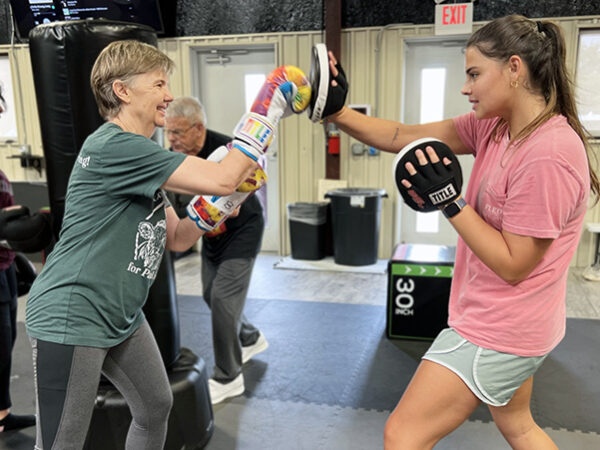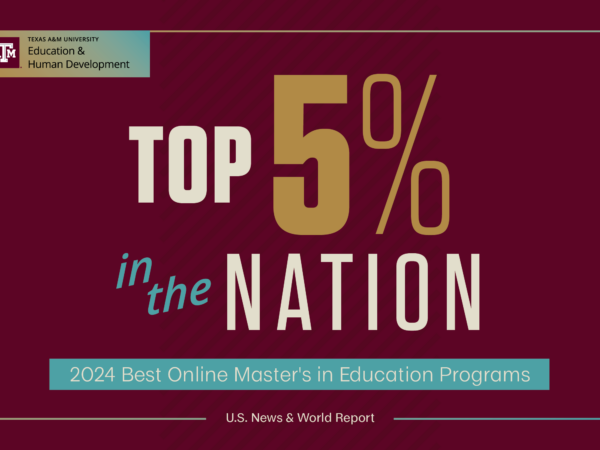Teachers: Undervalued But Incredibly Valuable
The long-term influence of a teacher is often underestimated. But, for a group of undergraduate and graduate students involved in three National Science Foundation grant programs at the University of Houston, that influence was life-changing.
When Dr. Cheryl Craig, professor and Houston Endowment Endowed Chair of Urban Education in the Department of Teaching, Learning and Culture, began interviewing these students, she found a series of similarities. One of the most prevalent was the impact of teachers on students’ life trajectories.
“The real turning point for me was when one student came in and said, ’17 undergraduate students are studying the STEM discipline at this university because of one advanced placement teacher in the Houston ship channel.’”
Craig, together with other members of the research team, started thinking about how much blame teachers receive and how undervalued they are. They know, from their own experiences, they would not be where they are without their teachers along the way.
That is when the team decided to work on changing the negative narrative surrounding teachers. They focused on the stories of impact from the students interviewed during the research process.
“People live storied lives. All of us, as humans, have experiences, but the only access we have to experience is through a narrative or story.”
One teachHOUSTON student, Joyce, credits her ability to excel in critical thinking to her elementary school teachers and her high school English teacher. She said learning to critically think not only helped her navigate a difficult relationship with her parents, but also how to get out of seemingly sexist situations in college classrooms.
“Teachers didn’t tell her how to think, but they gave her possible counter-stories about how she might deal with those kinds of things. So, when she did encounter challenges, she knew exactly how to make sense of them.”
Omid, a student who had a S-STEM scholarship in UH’s computer science department, came to the United States in his junior year of high school. He did not speak English and began to struggle. He says that all changed when his ESL teacher stepped up and put in extra time to make sure he was successful and a science teacher helped guide him to a university that had cyber technology scholarships.
“HIS TEACHERS TOOK THE IN LOCO PARENTIS ROLES. THIS IS SOMETHING WE NEED TO DO MORE IN TEACHER EDUCATION. WE NEED TO REALIZE THAT IF, FOR WHATEVER REASON A PARENT MAY NOT HAVE DONE WHAT THEY NEEDED TO DO, TEACHERS STEP INTO THIS ROLE. IT’S ABOUT DOING WHAT THE WISEST AND MOST POSITIVE PARENT WOULD DO.”
Omid went on to graduate with a 3.9 GPA. He was accepted into a computer science program where a professor took him under his wing and his guiding him in his college career.
Craig and the research team also focused on Leon, a student who grew up in poverty in a historical African-American neighborhood. Many of his teachers recognized the struggle and made sure he was fed.
One of those teachers was his track coach, who made sure to have breakfast one morning each week with the team. They not only talked about sports, they also discussed life and future education.
“That track coach played a very important role. He planted the seed that he could go to university, that he had it in him. He also taught him how to run. When he ran, in his head, he was always playing this new plot line of going to university.”
All three of these students, for a variety of reasons, would have been classified as likely failures in the state’s accountability system and at a high risk of dropping out. But, thanks to small acts of teachers, both their well-being and academic success changed.
These teachers listened to stories, engaged in hard conversations, provided food and comfort, and offered advice when needed. These small moments made a world of difference.
“We don’t know what we say or do that impacts somebody’s life. We don’t know the story that’s writing in their brain. But we do know that people’s lives are entrusted to us to be the best examples in behavior, in knowledge, in the way we shape relationships with other people and in the way we present ourselves.”
Craig hopes this research helps to shape teacher education programs. However, she also hopes to make an impact on the public’s perception of teachers. She knows the quality of teacher can make a larger impact on a student than the student’s background such as poverty and minority status.
“It’s important that we give credit where credit is due. And, not just a superficial kind of credit. This change’s people’s lives.”
You can read more about Craig’s research in the European Journal of Teacher Education.
The research team included Dr. Cheryl Craig; Paige Evans, a clinical professor at the University of Houston; Rakesh Verma, a professor at the University of Houston; Donna Stokes, an associate professor at the University of Houston; and Jing Li, a post-doctoral research fellow at East China Normal University and graduate of Texas A&M. Dr. Li is currently supported by the Peak Discipline Construction Project of Education at her university. This research was sponsored by the NSF Robert Noyce Grant 1240083, the NSF DUE Grant 1356705 and the NSF DGE Grant 1433817. All student names are pseudonyms.
About the Writer
Ashley is the Media Relations Coordinator and responsible for news coverage in the Department of Teaching, Learning and Culture as well as the Department of Educational Psychology.
Articles by AshleyFor media inquiries, contact Ashley Green.
Fundraising
To learn more about how you can assist in fundraising, contact Amy Hurley, Director of Development ahurley@txamfoundation.com or 979-847-9455














